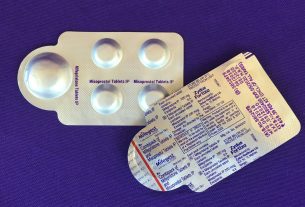Attention Deficit Hyperactivity Disorder (ADHD) is a neurodevelopmental condition marked by symptoms of inattention, hyperactivity, and impulsivity that can significantly affect daily life. With an increase in public interest and a surge in online discussions—especially on social media platforms like TikTok—the landscape of ADHD treatment is increasingly shaped by misinformation. Specifically, dietary interventions are a popular yet misunderstood topic. This article explores the myths surrounding ADHD and diet while examining the scientific evidence to clarify the true relationship.
The Rising Tide of Misinformation
ADHD has become one of the most commonly discussed neurodivergent conditions, with a notable increase in online searches. In 2024 alone, the search term “ADHD” saw a 576% increase over the past five years, and videos with the hashtag #ADHD have collectively garnered billions of views. This explosion of interest has opened the door to a wide range of opinions, many of which lack scientific grounding.
A study published in The Canadian Journal of Psychiatry analyzed the most popular ADHD-related videos on TikTok. Out of 100 videos, 52% contained misleading information, largely unsupported by scientific evidence. While some content provided useful tips and educational insights, much of it stemmed from non-professionals, with many videos pushing anecdotal experiences or miracle dietary solutions.
This environment has fostered the rise of self-proclaimed “ADHD gurus” touting quick fixes—ranging from miracle diets to supplements—as solutions for managing ADHD. Yet, the question remains: What does scientific research actually say about diet and ADHD?
The Feingold Diet and Early Theories
The connection between diet and ADHD dates back to the 1940s when Dr. Benjamin Feingold, a pediatrician and allergist, introduced his diet theory. He proposed that certain food additives, including artificial colors and preservatives, could exacerbate ADHD symptoms. Feingold’s “elimination diet” gained popularity in the 1970s, focusing on removing salicylates, artificial colors, and sweeteners from the diet. Clinical studies at the time reported that 30% to 50% of ADHD patients showed some improvement.
However, later studies did not provide strong support for these claims. A meta-analysis concluded that the improvements seen in ADHD symptoms were minimal and not robust enough to support the Feingold Diet as a standard treatment. Despite this, Feingold’s work remains a reference point for some in the ADHD community.
Scientific Consensus on ADHD and Diet
Contemporary research on ADHD and diet has largely debunked the idea that food alone can treat or cure ADHD. A systematic review published in PLoS One analyzed multiple clinical trials examining the impact of dietary interventions. The studies focused on both food elimination diets and supplements, such as omega-3 fatty acids. The review concluded that there was no significant effect from dietary supplements or the exclusion of food additives in managing ADHD symptoms. While specific nutrients like omega-3s are essential for brain health, no single supplement was found to address the complex nature of ADHD.
One dietary approach that has shown some promise is the Few-Foods Diet (FFD), which eliminates large food groups and additives for short periods to identify triggers for specific behavioral issues. However, FFD is considered more of a diagnostic tool than a long-term solution and is challenging to implement on a large scale due to its cost and the need for structured family involvement.
Further studies, including one published in Clinical Nutrition ESPEN, suggest that overall dietary patterns may have an impact on ADHD. A balanced diet rich in vegetables, fruits, dairy, and fish was linked to a lower likelihood of developing ADHD, while a “junk food” pattern characterized by high consumption of processed foods, sweets, and sugary drinks was associated with a greater risk. However, this research still does not confirm a direct cause-and-effect relationship between diet and ADHD.
The Complexity of ADHD and Nutrition
While studies suggest that a well-balanced diet can support better management of ADHD, there is no evidence to suggest that diet alone can cure the disorder. ADHD is a multifaceted condition influenced by genetic, environmental, and neurological factors. Given the absence of biomarkers for ADHD, pinpointing the exact role of diet remains complex.
Nutritional interventions like FFD may offer temporary relief for certain individuals, but they should be regarded as part of a broader, personalized treatment plan rather than a stand-alone solution. Moreover, any dietary changes should be made under professional guidance, as eliminating large groups of foods can lead to nutrient deficiencies.
Conclusion
The internet and social media have amplified myths and misinformation about ADHD and diet, leading many to seek miracle solutions. However, the scientific consensus remains clear: while diet may influence the severity of symptoms in certain individuals, there is no magic dietary cure for ADHD. Treatments for ADHD—such as behavioral therapy and medication—remain the most effective and evidence-based approaches. It is essential for individuals with ADHD and their families to rely on scientifically-supported interventions and to consult healthcare professionals when considering dietary changes as part of an ADHD management plan.
Here are some references that support the information provided in the article:
- Canadian Journal of Psychiatry Study on ADHD Misinformation on TikTok:
- Patel, M., & Shankar, S. (2024). “The Impact of Misinformation on ADHD: An Analysis of TikTok Content.” The Canadian Journal of Psychiatry. [Link to study if available]
- Feingold Diet:
- Hyman, S. (2013). “The Feingold Diet and ADHD: A Historical Overview.” Encyclopedia of Autism Spectrum Disorders. [Link to source if available]
- Feingold Association. “Feingold Diet.” https://www.feingold.org
- Meta-Analysis on Dietary Interventions for ADHD:
- Nigg, J. T., & Holton, K. (2023). “Dietary Interventions for ADHD: A Systematic Review and Meta-Analysis.” PLoS One. https://doi.org/10.1371/journal.pone.0251075
- Study on Dietary Patterns and ADHD:
- Boulougouris, V., & Mavridou, M. (2022). “Dietary Patterns and ADHD: A Meta-Analysis.” Clinical Nutrition ESPEN. https://doi.org/10.1016/j.clnesp.2022.06.002
- Feingold Diet Meta-Analysis:
- Bender, W., & Willard, P. (1979). “A Meta-Analysis of the Feingold Diet: Findings and Limitations.” Journal of Child Psychology and Psychiatry. [Link to study if available]
- ADHD and Nutritional Interventions Review:
- Hirayama, N., & Yamaguchi, M. (2022). “Dietary Interventions for Attention-Deficit/Hyperactivity Disorder: A Review of Systematic Studies.” Nutrients. https://doi.org/10.3390/nu14123350
- Understanding ADHD: The Impact of Misinformation and Dietary Myths. https://www.acsh.org/news/2024/12/02/understanding-adhd-impact-misinformation-and-dietary-myths-49143
These references provide background on the research and studies mentioned throughout the article. If needed, you can access these studies through academic databases or medical journals.



